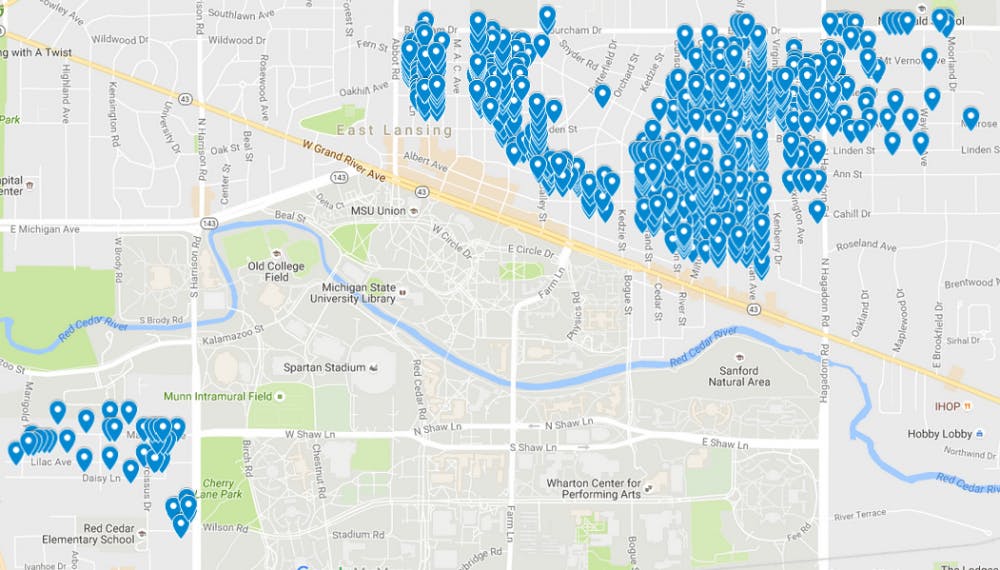Changing E.L. housing ordinance could improve rental housing quality

East Lansing City Council will soon hear a proposed ordinance that would allow expansions and upgrades to some of the rental houses frequently leased by students.
This work is presently forbidden because in 1997 the city of East Lansing passed an ordinance zoning some residential sections of the city for single-family use or for dwellings inhabited by no more than two unrelated individuals.
Homes that did not comply with the ordinance were labeled as “non-conforming.”
This designation applies to the many house-renting students who often live with several unrelated roommates, Non-Conforming Use Committee chairperson Douglas Jester said.
Non-conforming homes are limited in the upgrades landlords can make to them.
Landlords can make simpler, aesthetic upgrades, such as installing new light fixtures. However, they cannot build additions onto homes that could create the space for amenities like additional bedrooms or bathrooms, Tim Dempsey, East Lansing director of planning, building and development, said.
“Modernizing these houses under the existing law is hard,” Jester said.
The planning committee for East Lansing is now reviewing four possible ordinances to put in front of City Council, Dempsey said.
The ordinances would allow expansions to some buildings and bathroom additions to rental properties. None of the ordinances allow expansions that would boost a building’s square footage by more than 20 percent.
Dempsey said the planning committee will likely only recommend one of the ordinances, or take several aspects from each and recommend a hybrid version.
The Non-Conforming Use Committee completed a report on East Lansing’s non-conforming rental properties in May.
The issue isn’t just in focus under the local lens. The state of Michigan has also been taking the non-conforming issue into its own hands.
READ MORE
Senate Bill 1060, a bill proposing similar action to the recent East Lansing ordinances in, was heard by the local government committee on Sept. 20.
Alex Noffsinger, ASMSU’s vice president for governmental affairs, said he went to the meeting to speak in support of the bill.
“The state bill allows everything that happens under the ordinances and more,” Noffsinger said. “It basically gives landlords the same amount of rights as permanent homeowners as far as what they can do with their properties and their actual structures. I think it’s only fair that landlords should be able to do that on behalf of their student renters.”
Noffsinger said he and other supporters are hopeful it will pass the Michigan Senate and House during the lame duck session between Election Day and the new term in 2017.
If either the legislation or ordinances are passed, students might see changes to the rental options in East Lansing.
“If landlords are allowed to do interior reconfigurations or exterior additions this would then potentially change some of the rental properties in town,” Dempsey said in a previous story from The State News. “People could end up renting a place with an extra bedroom or bathroom. It could make some of the older properties more attractive to people.”
Support student media! Please consider donating to The State News and help fund the future of journalism.
It is possible that if rental properties are renovated to have an addition, rates could increase.
“I wouldn’t be surprised (if) when they make these improvements they raise rents, but of course it would also be improved living conditions,” Jester said.
Noffsinger said that’s not what this legislation is about and the issue at hand is the ability to improve rental properties.
“In the past it’s been seen as a landlord issue, you know, landlords want to improve their homes so they can charge more,” Noffsinger said. “But it’s not that. Landlords want to have respectable homes, livable homes. They don’t want their tenant’s parents visiting and being disgusted and disapproving of what kids have to live in.”






